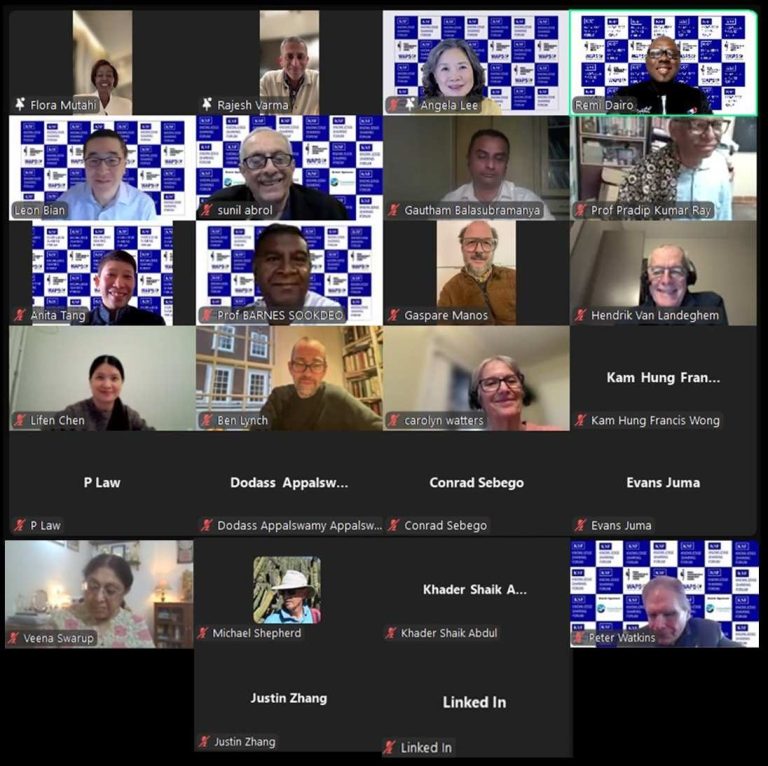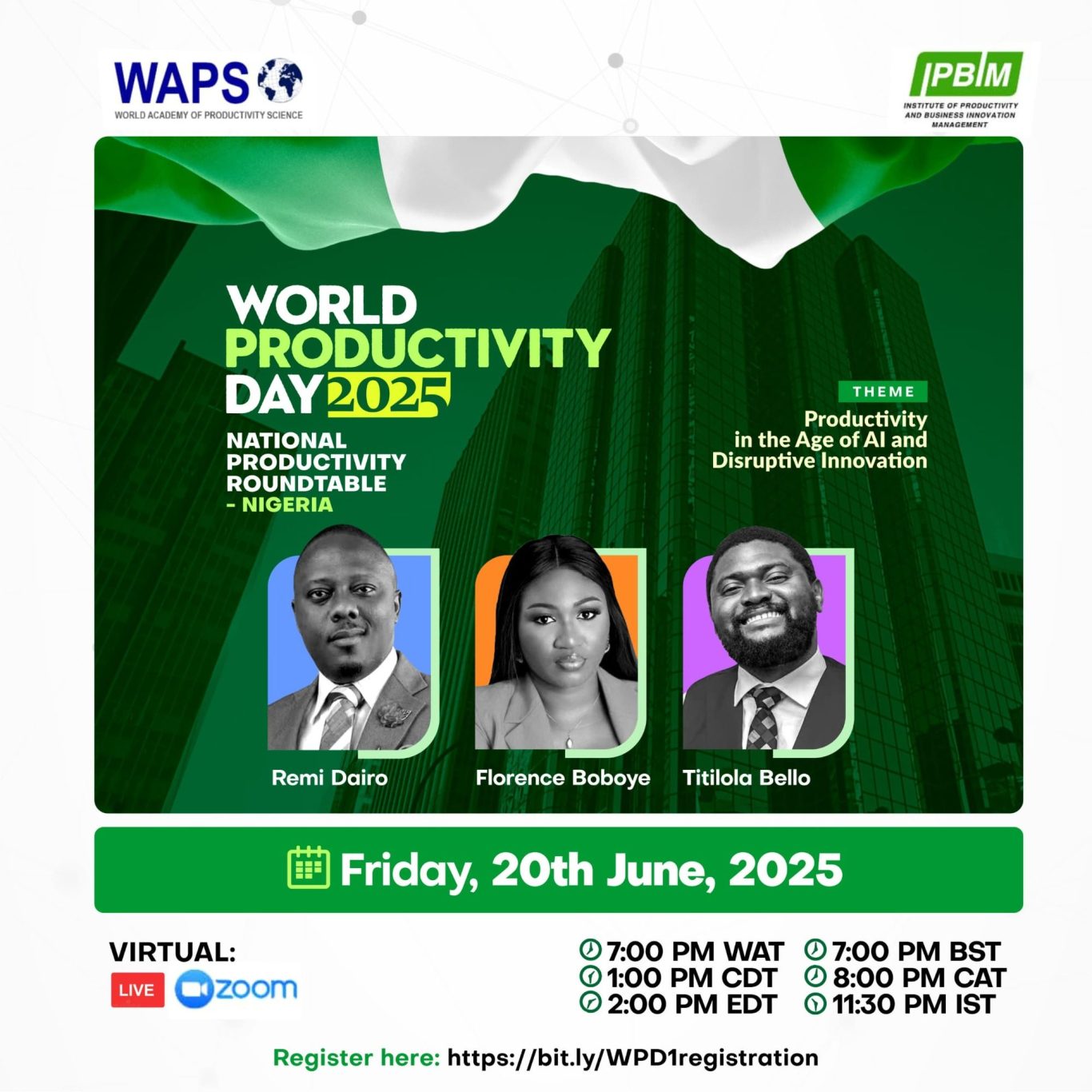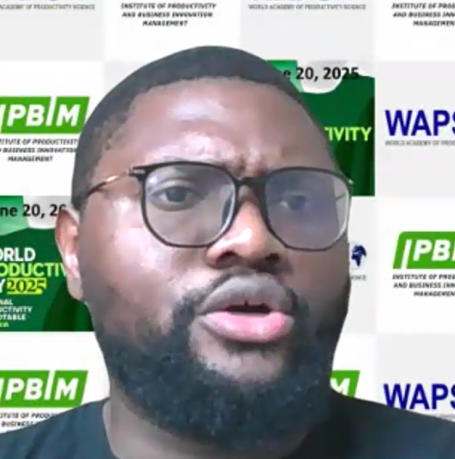Programs and Events
Online and In-Person WAPS Programs and Events that Facilitate Global Learning and Exchange
UP-COMING EVENTS
Global Summit
Productivity in the Age of AI
August 20-21, 2025 -- Delhi, India
As artificial intelligence (AI) and Industry 4.0 technologies transform the way we live, work, and innovate, it is essential to reimagine productivity tools and systems across industries and services. These advancements bring unprecedented opportunities to enhance efficiency, environmental sustainability, and economic growth.
AI is reshaping daily life by fostering innovation, optimizing supply chains, and reducing operational costs. However, this transformation also calls for robust industry-academia partnerships to drive continuous innovation and develop a skilled workforce to thrive in the AI era.
The Global Summit on Productivity in the Age of AI offers a collaborative platform to explore challenges, identify growth pathways and foster sustainable productivity improvements. Experts from policy, academia, industry, and civil society will come together to discuss AI's potential in shaping a greener, more inclusive and prosperous future.
.

The Eleventh
Knowledge-Sharing Forum
September 2025

.
The Knowledge-Sharing Forum (KSF) is an online-learning program delivered by the World Academy of Productivity Science.
KSF provides a forum for sharing knowledge and experiences, best practices and future trends by academicians, thought leaders, subject-matter experts, industry leaders, government officials and Fellows of WAPS around the world on productivity-related topics, challenges and issues.
KSF is a great source of learning, knowledge sharing, networking, and making a difference through one's professional expertise.
Forum Coordinators:
PAST KSF EVENTS
10th KSF Event — March 20, 2025, Thursday
“Adapting to Technological Changes: Preparing the Workforce for Future Productivity Challenges” was moderated by Mr. Remi Dairo, a Fellow of WAPS and productivity expert from the Institute of Productivity and Business Innovation Management (IPBIM) in Africa and Productivate Plus in Texas, U.S.A.
Our three distinguished speakers shared powerful insights into leveraging technological innovation, particularly AI, to enhance workforce productivity.
Mr. Sanjay Varma emphasized the rapid pace of AI and automation, stressing that workers and businesses must adopt continuous learning and adaptability. Highlighting his experiences from the tech industry, including insights from the Nvidia conference, he stressed, "AI won't take your job, but those who use AI will take your job."
Dr. Shalini R. Urs explored the transformative role of AI across multiple domains, including economic productivity, healthcare, and scientific research. She presented case studies illustrating the successful integration of AI, emphasizing the importance of adopting collaborative and open data practices. Dr. Urs advocated that AI must augment human intelligence, making collaboration essential for future productivity.
Mr. Oluyemi Orimolade, representing the Microsoft Africa Development Center, discussed real-world implications and strategies for workforce adaptation to AI. He emphasized the necessity of proactive skill development, continuous learning, and ethical considerations, urging organizations to focus on results and outcomes rather than traditional metrics. Mr. Oluyemi underscored the role of public-private partnerships in fostering an agile and future-ready workforce.
Click below for selected Forum Presentations:
Dr. Shalini R. Urs – AI in Economic, Healthcare, and Research Productivity
WAPS Program (Mr. Remi Dairo, Moderator)
9th KSF Event — December 5, 2024, Thursday
“Diversity in Productivity: Inclusive Leadership – Managing Diverse Teams to Optimize Productivity” was moderated by Mr. Leon Bian, a Fellow of WAPS and KSF Forum Coordinator.
Our three speakers offered strikingly diverse perspectives during the discussions, exemplifying real-world diversity.
Prof. Angela Lee presented extensive research data on the relationship between diversity and productivity, spanning a range of topics from academic collaboration to developmental psychology, agricultural practices in the Netherlands, workforce diversity in Belgium, and industry-specific studies in Taiwan. She concluded that the impact of diversity is a complex issue, with its effects varying depending on the industry context.
Mr. Rajesh Varma emphasized his belief in diversity, stating that it is not merely a moral imperative but also a sound business strategy. He provided various examples of how he has prioritized diversity within the investment management sector. Mr. Varma acknowledged that different countries possess distinct cultural values, noting that the norms in Scandinavian nations, for instance, can vary significantly from those found in Asian countries. According to McKinsey's 2019 business-case findings, top-quartile companies with ethnically and culturally diverse executive teams outperformed their fourth-quartile counterparts by 36% in profitability.
Ms. Flora Mutahi, an expert on the region, observed that the African continent is remarkably diverse, encompassing a wide range of ethnicities, languages, religions, genders, ages, socioeconomic backgrounds, and skill sets. She shared her experiences founding the "Women in Manufacturing" program, which helps women scale their businesses. She empowers women and youth by helping them gain access to funding, capacity-building opportunities, and professional networking.
Click below for selected Forum Presentations:
WAPS Program (Mr. Leon Bian, Moderator)
Other Events
WAPS hosts a variety of productivity-focused events, both independently and in collaboration with other entities.
The Academy is the go-to partner that creates, enhances, and disseminates the body of knowledge (BOK) for global productivity to its worldwide network.

OTHER PAST EVENTS






Productivity Day Event
For University Students In Ankara
To celebrate World Productivity Day, Prof. Mevlüt Hürol Mete (Fellow of WAPS) has organized an on-site event showcasing productivity for university students on June 27, 2025. Twenty students from Ankara University and TOBB University of Economics and Technology visited the Ankara Chamber of Industry Competence and Transformation Center (Model Factory). The event, which was organized to introduce productivity improvement techniques in enterprises, was hosted by Mr. Anıl Yılmaz (Fellow of WAPS), General Manager of Model Factory.
What is a Model Factory?
Model Factory is a competence center established to eliminate waste and increase productivity of businesses that are concerned about productivity. The experiential trainings and learning programs offered by Model Factories help businesses learn “Lean Production Techniques” that can increase their productivity. Businesses reinforce the techniques they learn by applying them on the production line in the Center. At the same time, businesses participating in the program are accompanied by expert lean production coaches as they apply what they have learned in their own fields.
In Turkey, work on Model Factories was initiated in 2015 under the coordination of the Ministry of Industry and Technology, and 10 Model Factories (in Adana, Ankara, Bursa, Eskişehir, Gaziantep, İzmir, Kayseri, Kayseri, Konya, Mersin, Mersin and Samsun) have been established and put into operation with the help of national and international funds. While the focus of the Model Factories, which guide enterprises in their efforts to increase productivity, is on lean production training and consultancy, infrastructure and human resources development work is also being carried out to enable them to operate in the field of digital transformation.
World Productivity Day Celebration
Productivity in the Age of AI and Disruptive Innovation — June 20, 2025
The National Productivity Roundtable—Nigeria brought together visionary thought leaders and innovators in an enlightening virtual event with the theme "Productivity in the Age of AI and Disruptive Innovation." Presented by the Institute of Productivity and Business Innovation Management (IPBIM) in partnership with the World Academy of Productivity Science, the roundtable included renowned speakers, including Remi Dairo (President, IPBIM and Fellow of WAPS), Florence Boboye (VP at Treepz, mobility pioneer and women in tech champion), and Titilola Bello (Co-Founder and COO of Dataelum).
The Zoom session attracted a global audience, bringing together participants from Africa, Europe, North America, and Asia. The focus was on actionable advice on how to responsibly deploy AI, promote inclusive innovation, and drive national productivity in the face of rapid change. The roundtable emphasized the pressing need for multisectoral collaboration between government, business, and technology to underpin sustainable productivity gains.
Click below for selected Forum Presentations:
Ms. Florence Boboye -- Productivity in the Age of AI and Descriptive Innovation
NOCN-WAPS Webinar — April 30, 2024, Tuesday
“Economic Growth through Improving Productivity Skills," a NOCN-WAPS Webinar featured expert voices from organizations across the globe -- Mr. Graham Hasting-Evans, Chief Executive of NOCN Group, Professor P.B. Sharma, Vice Chancellor of Amity University, Professor Philip McCann, Chair of Urban and Regional Economics of Alliance Manchester Business Schools, and Mr. Philip Hendrikx, Business Operations Director of Mitie Plc.
The experts each delivered inspiring and informative insights and the webinar concluded with an engaging panel discussion.
The discussion highlighted that sustainable and fair economic growth cannot be achieved without improvements in productivity. It tackled key questions such as:
- What are productivity skills?
- What can we learn from emerging economies about productivity?
- What is the role of the ‘circular economy’?
- How can the U.K. ‘level-up’ sustainably?
- How can industry maximize the benefits of digitization and AI without ‘replacing people’?










